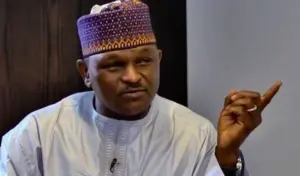Minister of Works, David Umahi, has called on Nigerians—particularly those from the Southeast—to support President Bola Tinubu’s bid for a second term, insisting that it is not yet the region’s turn to produce the country’s leader.
Speaking during an interview with the News Agency of Nigeria (NAN) in Abuja, Umahi emphasized the importance of patience, regional unity, and political continuity for national stability.
“No, it is not our time yet. Before 2023, the 17 Southern governors agreed in Asaba that power should shift to the South,” Umahi said.
“We all tried, but the crown came upon President Tinubu. He must complete his eight years, which belong to both the South and the North. After 2031, the Southeast can contest, having never produced the president.”
Dismissing fresh claims of marginalisation by some Southeast voices, Umahi said such narratives are politically driven and do not reflect the current administration’s treatment of the region.
“President Tinubu does not want to know where you come from; he is treating everybody well,” he stated.
Read Also
According to Umahi, the Ministry of Works is currently executing over ₦350 billion worth of infrastructure projects across the Southeast. These include major roadworks such as the Enugu–Onitsha, Port Harcourt–Aba, and Aba–Umuahia highways.
He argued that while the region may not have secured a significant number of political appointments, it is receiving critical infrastructure investments that are more impactful in the long term.
“The Southeast has passed that stage. If we didn’t get all the appointments, we are getting the infrastructure, and that is what matters,” Umahi added.
The minister also provided context by pointing out the broader national picture. He noted that some northern regions, particularly the Northwest, had historically received a much larger share of federal infrastructure investments.
“When the Budget Office reviewed national infrastructure, the Northwest had three to four times more projects than the Southeast and Northeast,” he said.
Umahi maintained that the Southeast’s current focus should be on consolidating progress, supporting the Tinubu administration, and positioning itself for leadership in the post-2031 political cycle.





